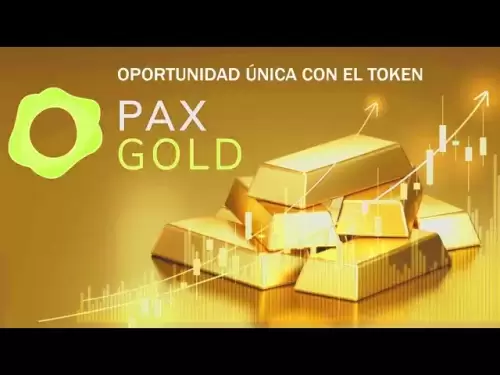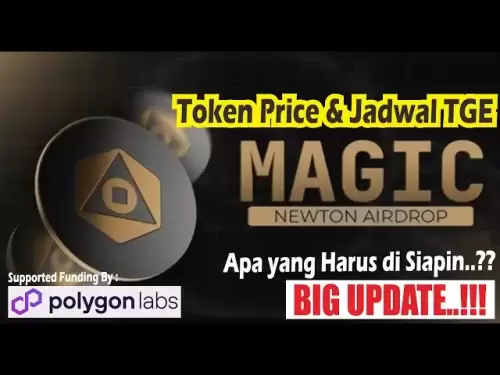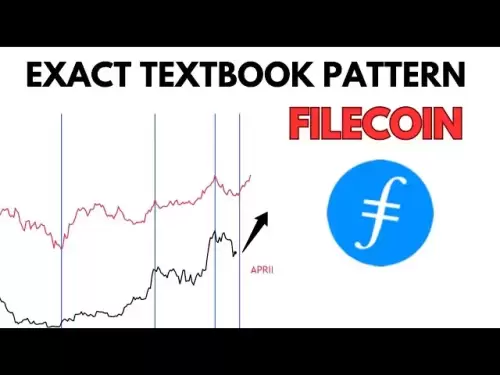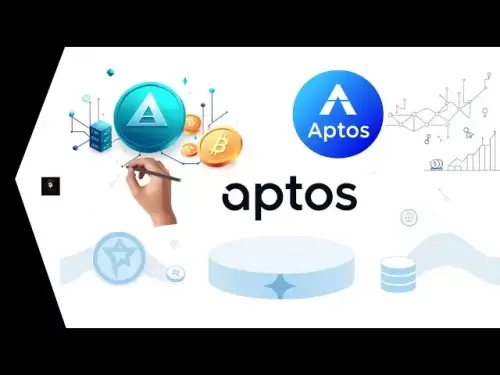-
 Bitcoin
Bitcoin $99,594.2189
-3.59% -
 Ethereum
Ethereum $2,188.5793
-9.00% -
 Tether USDt
Tether USDt $1.0001
-0.02% -
 XRP
XRP $1.9745
-5.82% -
 BNB
BNB $608.9511
-3.73% -
 Solana
Solana $130.4575
-5.93% -
 USDC
USDC $1.0000
0.01% -
 TRON
TRON $0.2637
-3.59% -
 Dogecoin
Dogecoin $0.1493
-5.97% -
 Cardano
Cardano $0.5322
-6.72% -
 Hyperliquid
Hyperliquid $33.9044
3.33% -
 Bitcoin Cash
Bitcoin Cash $449.6411
-5.46% -
 UNUS SED LEO
UNUS SED LEO $8.9629
0.43% -
 Sui
Sui $2.3943
-8.35% -
 Chainlink
Chainlink $11.4402
-7.83% -
 Stellar
Stellar $0.2241
-6.49% -
 Avalanche
Avalanche $16.1489
-4.24% -
 Toncoin
Toncoin $2.7182
-5.94% -
 Shiba Inu
Shiba Inu $0.0...01040
-5.72% -
 Litecoin
Litecoin $78.7882
-4.07% -
 Ethena USDe
Ethena USDe $1.0004
-0.01% -
 Hedera
Hedera $0.1305
-7.45% -
 Monero
Monero $297.0030
-5.32% -
 Dai
Dai $0.9997
-0.02% -
 Polkadot
Polkadot $3.1834
-6.03% -
 Bitget Token
Bitget Token $3.9788
-7.03% -
 Uniswap
Uniswap $6.1327
-10.62% -
 Pepe
Pepe $0.0...08689
-8.30% -
 Pi
Pi $0.4826
-9.65% -
 Aave
Aave $219.8043
-9.69%
how to buy bitcoin new york
To ensure compliance in New York City, buyers must select cryptocurrency exchanges that hold the necessary BitLicense from the NYDFS for secure and legal Bitcoin transactions.
Jan 29, 2025 at 06:55 pm

Key Points:
- Understanding the legal framework for buying Bitcoin in New York
- Choosing a reputable and regulated cryptocurrency exchange
- Setting up an account and verifying your identity
- Funding your account and placing a Bitcoin purchase order
- Securing your Bitcoin wallet
How to Buy Bitcoin in New York City: A Step-by-Step Guide
Step 1: Understand the Legal Framework
In New York City, Bitcoin transactions are subject to the BitLicense regulation, which requires cryptocurrency exchanges operating within the state to obtain a license from the New York State Department of Financial Services (NYDFS). This regulation is designed to protect consumers and ensure that exchanges adhere to strict compliance standards.
Step 2: Choose a Reputable Exchange
Select a cryptocurrency exchange that:
- Holds a valid BitLicense from the NYDFS
- Offers low transaction fees and competitive exchange rates
- Employs robust security measures to protect user funds
- Has a user-friendly interface and excellent customer support
Step 3: Set Up an Account
Visit the website of the chosen exchange and create an account. Provide your name, email address, and a strong password. Verify your identity by uploading a government-issued identification document.
Step 4: Fund Your Account
Link your bank account or debit/credit card to your exchange account. Select the preferred funding method and follow the instructions to transfer funds to your exchange wallet. Verify the amount and processing time before completing the transaction.
Step 5: Place a Bitcoin Purchase Order
Navigate to the exchange's Bitcoin trading platform. Enter the amount of Bitcoin you wish to purchase in BTC or USD. Choose a market or limit order, depending on your trading strategy. Confirm the order details and click "Buy Bitcoin."
Step 6: Take Ownership of Your Bitcoin
Once the order is executed, you will own the purchased Bitcoin. Withdraw the Bitcoin from the exchange into your personal cryptocurrency wallet for safekeeping. Store your wallet securely using a combination of online and offline storage methods.
Step 7: Secure Your Wallet
Emphasize the importance of protecting your Bitcoin wallet. Consider hardware wallets for offline storage, enable two-factor authentication, and keep your device firmware and software up to date. Exercise caution when using public Wi-Fi networks or accessing sensitive information.
FAQs:
Q: What is the minimum age to buy Bitcoin in New York City?
A: You must be at least 18 years old to create an account and purchase Bitcoin on licensed exchanges in New York City.
Q: What are the tax implications of buying and selling Bitcoin?
A: Bitcoin purchases and sales may be subject to capital gains tax based on your profit or loss. Seek advice from a qualified tax professional for specific guidance.
Q: Are there any restrictions on how much Bitcoin I can buy?
A: The amount of Bitcoin you can buy may vary depending on the exchange and your verification level. Some exchanges impose transaction limits for unverified users.
Q: Is it safe to buy Bitcoin in New York City?
A: Yes, it is safe to buy Bitcoin in New York City as long as you use licensed and reputable cryptocurrency exchanges. However, always practice due diligence, protect your wallet, and be aware of potential risks associated with cryptocurrency trading.
Disclaimer:info@kdj.com
The information provided is not trading advice. kdj.com does not assume any responsibility for any investments made based on the information provided in this article. Cryptocurrencies are highly volatile and it is highly recommended that you invest with caution after thorough research!
If you believe that the content used on this website infringes your copyright, please contact us immediately (info@kdj.com) and we will delete it promptly.
- Shiba Inu's Market Pressure: Price Drop and the Road to Recovery
- 2025-06-23 06:25:13
- Dogwifhat (WIF) Price Prediction: Falling Wedge Offers Hope Amidst Market Volatility
- 2025-06-23 06:25:13
- Bitcoin's Wild Ride: Crash, Price, and Geopolitical Tensions - A New Yorker's Take
- 2025-06-23 06:52:13
- Peter Schiff, Bitcoin, and USD Stablecoins: A Love-Hate Relationship?
- 2025-06-23 06:52:13
- Bitcoin, Ethereum, and the Crypto Market Crash: Navigating the Red Sea
- 2025-06-23 06:55:13
- Bitcoin, Ethereum, XRP: Navigating the Crypto Correction and Spotting Future Trends
- 2025-06-23 07:05:12
Related knowledge

What is Ethereum’s Slashing mechanism and how to punish malicious behavior?
Feb 20,2025 at 03:08am
Key PointsOverview of slashingDifferent types of slashing in EthereumIncentives and consequences of slashingIdentifying and reporting slashed validatorsOngoing discussions and potential improvementsEthereum's Slashing Mechanism: Punishing Malicious BehaviorEthereum's slashing mechanism is an essential tool for ensuring network security and punishing mal...

What is the verifier node of Ethereum and how to become a verifier?
Feb 19,2025 at 06:00pm
The Verifier Node of Ethereum: A Comprehensive GuideKey Points:What is a Verifier Node?How to Become a Verifier NodeResponsibilities and Rewards of a Verifier NodeMinimum Requirements for Becoming a Verifier NodePotential Difficulties in Running a Verifier Node1. What is a Verifier Node?A Verifier Node is an independent entity on the Ethereum network th...

What is Ethereum’s staking, and how to participate and earn money?
Feb 19,2025 at 04:37pm
Key Points:Understanding Ethereum's Staking MechanismSteps to Participate in StakingBenefits and Rewards of StakingSecurity and Risk ConsiderationsTechnical Requirements and Hardware OptionsPotential Challenges and Troubleshooting TipsFAQs on Ethereum StakingWhat is Ethereum's Staking?Proof-of-Stake (PoS) is a consensus mechanism used in blockchain netw...

What is Ethereum’s DAO (Decentralized Autonomous Organization) and how does it work?
Feb 20,2025 at 03:12am
Key PointsDefinition and Structure of a DAOGovernance and Decision-Making in DAOsBenefits and Use Cases of DAOsChallenges and Limitations of DAOsWhat is Ethereum's DAO (Decentralized Autonomous Organization) and How Does It Work?Definition and Structure of a DAOA Decentralized Autonomous Organization (DAO) is an innovative governance and management fram...

What is Ethereum's multi-signature wallet and how to improve security?
Feb 20,2025 at 02:18pm
Key Points:Understanding the Concept of a Multi-Signature WalletBenefits and Drawbacks of Multisig WalletsRequirements for Setting Up a Multisig WalletStep-by-Step Guide to Generating a Multisig WalletImplementing Strategies for Enhanced Security1. Understanding the Concept of a Multi-Signature WalletA multi-signature (multisig) wallet in the Ethereum e...

What is Ethereum's oracle and how to provide data for smart contracts?
Feb 21,2025 at 01:30am
Key Points:Understanding the concept of oracles in EthereumExploring different types of oraclesDetailed guide on how to provide data for smart contractsAddressing potential challenges and considerationsWhat is Ethereum's Oracle?Oracles are crucial components in the Ethereum ecosystem, enabling smart contracts to access real-world data and off-chain even...

What is Ethereum’s Slashing mechanism and how to punish malicious behavior?
Feb 20,2025 at 03:08am
Key PointsOverview of slashingDifferent types of slashing in EthereumIncentives and consequences of slashingIdentifying and reporting slashed validatorsOngoing discussions and potential improvementsEthereum's Slashing Mechanism: Punishing Malicious BehaviorEthereum's slashing mechanism is an essential tool for ensuring network security and punishing mal...

What is the verifier node of Ethereum and how to become a verifier?
Feb 19,2025 at 06:00pm
The Verifier Node of Ethereum: A Comprehensive GuideKey Points:What is a Verifier Node?How to Become a Verifier NodeResponsibilities and Rewards of a Verifier NodeMinimum Requirements for Becoming a Verifier NodePotential Difficulties in Running a Verifier Node1. What is a Verifier Node?A Verifier Node is an independent entity on the Ethereum network th...

What is Ethereum’s staking, and how to participate and earn money?
Feb 19,2025 at 04:37pm
Key Points:Understanding Ethereum's Staking MechanismSteps to Participate in StakingBenefits and Rewards of StakingSecurity and Risk ConsiderationsTechnical Requirements and Hardware OptionsPotential Challenges and Troubleshooting TipsFAQs on Ethereum StakingWhat is Ethereum's Staking?Proof-of-Stake (PoS) is a consensus mechanism used in blockchain netw...

What is Ethereum’s DAO (Decentralized Autonomous Organization) and how does it work?
Feb 20,2025 at 03:12am
Key PointsDefinition and Structure of a DAOGovernance and Decision-Making in DAOsBenefits and Use Cases of DAOsChallenges and Limitations of DAOsWhat is Ethereum's DAO (Decentralized Autonomous Organization) and How Does It Work?Definition and Structure of a DAOA Decentralized Autonomous Organization (DAO) is an innovative governance and management fram...

What is Ethereum's multi-signature wallet and how to improve security?
Feb 20,2025 at 02:18pm
Key Points:Understanding the Concept of a Multi-Signature WalletBenefits and Drawbacks of Multisig WalletsRequirements for Setting Up a Multisig WalletStep-by-Step Guide to Generating a Multisig WalletImplementing Strategies for Enhanced Security1. Understanding the Concept of a Multi-Signature WalletA multi-signature (multisig) wallet in the Ethereum e...

What is Ethereum's oracle and how to provide data for smart contracts?
Feb 21,2025 at 01:30am
Key Points:Understanding the concept of oracles in EthereumExploring different types of oraclesDetailed guide on how to provide data for smart contractsAddressing potential challenges and considerationsWhat is Ethereum's Oracle?Oracles are crucial components in the Ethereum ecosystem, enabling smart contracts to access real-world data and off-chain even...
See all articles
























































































